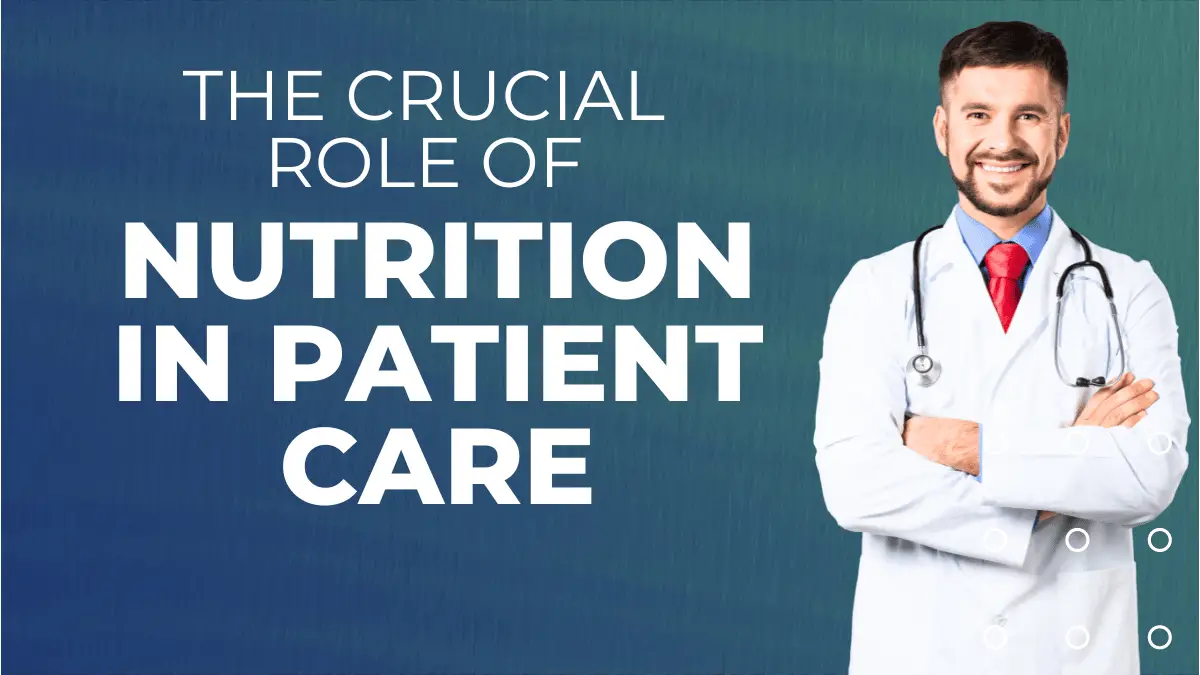Nutrition is the cornerstone of overall health and well-being, playing a pivotal role in patient care across various medical settings. While medical interventions and therapies are vital, the significance of nutrition cannot be overstated. In this comprehensive guide, we delve into the importance of nutrition in patient care, exploring its impact on recovery, management of chronic conditions, and overall health outcomes.
Understanding the Nexus Between Nutrition and Patient Care:
Nutrition as a Fundamental Pillar of Health:
Nutrition forms the foundation of good health, influencing physiological functions, immune response, and disease prevention. Adequate nutrition supports optimal organ function, tissue repair, and cellular regeneration, crucial aspects in patient recovery and well-being.
Impact of Nutrition on Disease Management:
In various medical conditions such as diabetes, cardiovascular diseases, and cancer, nutrition plays a pivotal role in disease management. Tailored dietary interventions can help control blood sugar levels, manage cholesterol levels, and reduce the risk of complications, augmenting traditional medical treatments.
Nutritional Considerations in Different Patient Populations:
Different patient populations, such as children, the elderly, and individuals with specific medical conditions, have unique nutritional needs. Understanding these nuances is critical in providing personalized care and optimizing patient outcomes.
The Role of Nutrition in Surgical Recovery:
Nutrition significantly influences surgical outcomes, with pre-operative nutrition status impacting post-operative recovery. Adequate pre-operative nutrition can enhance immune function, promote tissue healing, and reduce the risk of post-operative complications.
Addressing Malnutrition in Patient Care:
Malnutrition is a prevalent yet often overlooked issue in patient care, associated with increased morbidity, mortality, and healthcare costs. Recognizing and addressing malnutrition early in the care continuum is essential for optimizing patient outcomes and improving quality of life.
Case Study: The Impact of Nutrition on Patient Outcomes
To illustrate the tangible benefits of nutrition in patient care, let’s consider a case study of a patient undergoing chemotherapy for cancer treatment.
| Patient | Nutritional Intervention | Outcome |
|---|---|---|
| Patient A | Individualized nutrition plan incorporating high-protein, high-calorie foods to combat treatment-related side effects such as nausea and loss of appetite. | Improved nutritional status, reduced treatment interruptions, and enhanced quality of life during chemotherapy. |
Practical Strategies for Implementing Nutritional Interventions:
Collaborative Approach to Patient Care:
Effective nutritional interventions require a multidisciplinary approach, involving physicians, dietitians, nurses, and other healthcare professionals. Collaborative care ensures comprehensive assessment, individualized interventions, and ongoing monitoring to optimize nutritional status.
Education and Counseling:
Patient education and counseling play a crucial role in promoting dietary adherence and behavior change. Providing patients with evidence-based information, practical tips, and ongoing support empowers them to make informed decisions regarding their nutrition and health.
Integration of Technology in Nutritional Care:
Advancements in technology have revolutionized nutritional care, facilitating remote monitoring, personalized meal planning, and real-time feedback. Incorporating digital tools and telehealth platforms can enhance accessibility, convenience, and effectiveness of nutritional interventions.
Conclusion:
In conclusion, nutrition is a fundamental aspect of patient care, influencing health outcomes across various medical conditions and treatment modalities. By prioritizing nutritional interventions, healthcare professionals can optimize patient recovery, enhance quality of life, and reduce healthcare costs. Embracing a patient-centered approach, leveraging interdisciplinary collaboration, and harnessing technological advancements are key strategies in integrating nutrition into holistic patient care practices.


